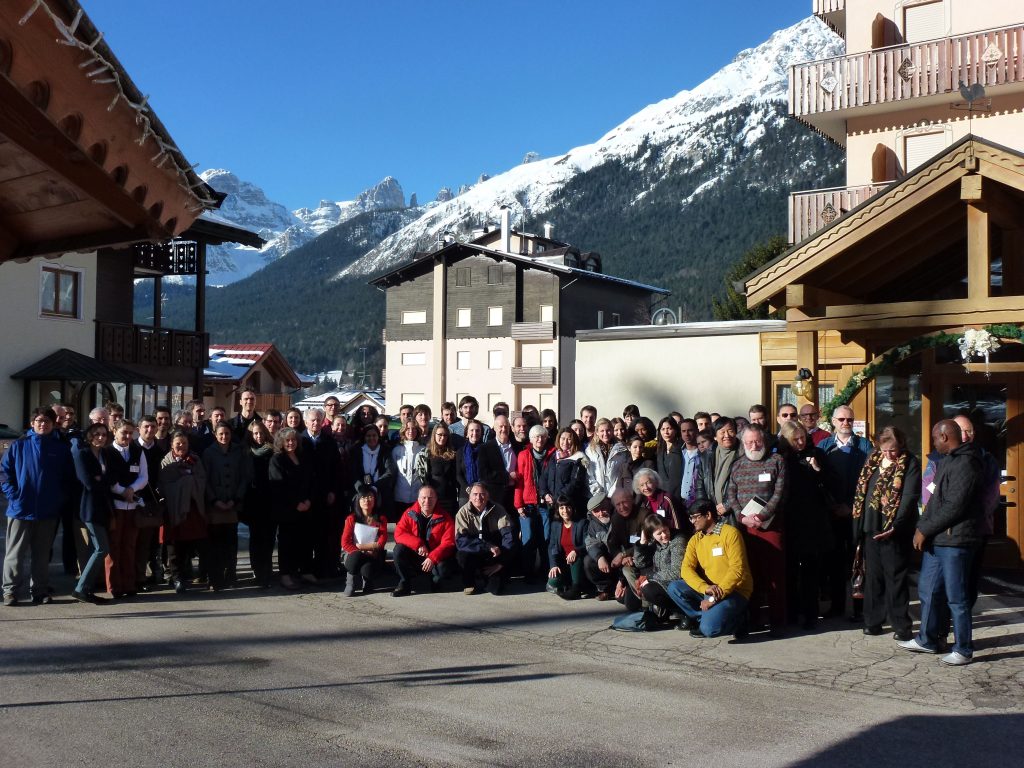Andalo (Trento) 8 – 15 January 2014
| UNIVERSITY OF ROME “TOR VERGATA” | UNIVERSITY OF TRENTO |
| UNIVERSITY OF PADOVA | CARNEGIE CORPORATION OF NEW YORK |
| RESEARCH CENTER ON PEACE WAR AND INTERNATIONAL CHANGE (FBK-CERPEG), Trento | FONDAZIONE OPERA CAMPANA DEI CADUTI Rovereto |
| FORUM TRENTINO PER LA PACE Autonomous Province of Trento | UNIONE SCIENZIATI PER IL DISARMO (USPID) Sezione di Trento |
Nuclear Governance: prospects for a strengthened nonproliferation regime
Director of the School: Carlo Schaerf (Isodarco, Rome, Italy)
Directors of the Course: Matthew Evangelista (Department of Government, Cornell University, Ithaca, NY, USA), Judith Reppy (Department of Science & Technology Studies, Cornell University, Ithaca, NY, USA)

Description
More than two decades after the end of the cold war, nuclear weapons continue to pose a grave threat to international security. The stockpiles of the major nuclear powers still number in the hundreds or thousands, while the near-universal adoption of the Nuclear Nonproliferation Treaty (NPT) has not been enough to prevent nuclear aspirants from acquiring the means to produce their own weapons. The 2014 Isodarco Winter School will address the challenge of strengthening nonproliferation rules and practices in a world where many states face real and perceived security threats. We will pay particular attention to the tensions between states that frame nuclear security primarily in terms of preventing terrorists and certain states from acquiring nuclear weapons and those that prefer alternative approaches, such as creating nuclear weapons free zones. Topics will include: a) technical aspects of protecting the nuclear fuel cycle; b) assessing new efforts to secure, cut off, and reduce fissile material stockpiles; c) issues posed by recent nuclear proliferation; d) the roles of international law and domestic measures in supporting a strengthened nonproliferation regime. Special attention will be devoted to practical steps to increase the capacity of the Vienna-based International Atomic Energy Agency to deal with its increasing responsibilities.

